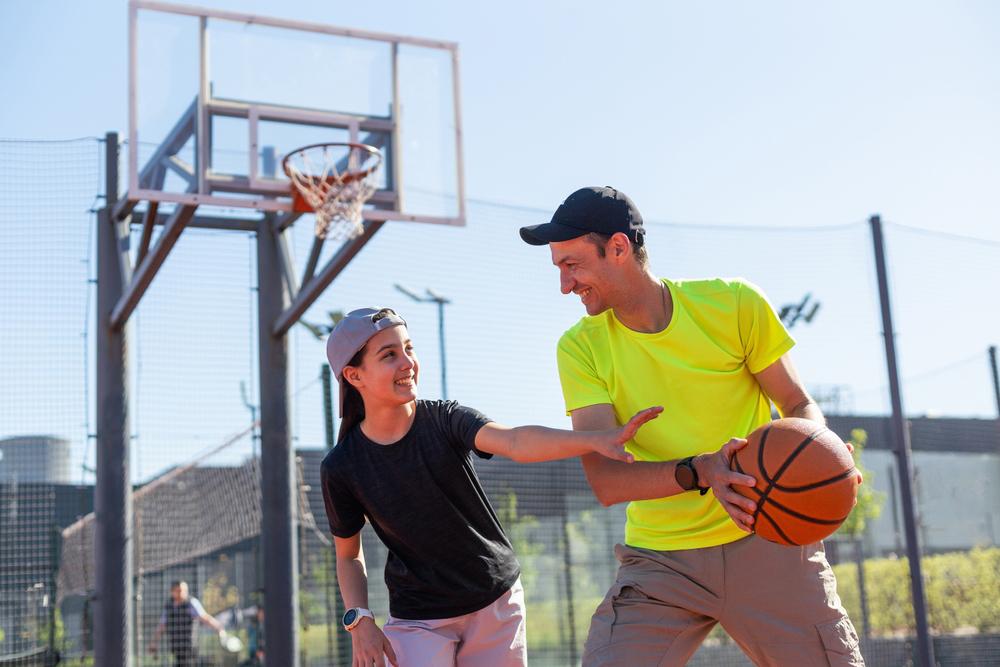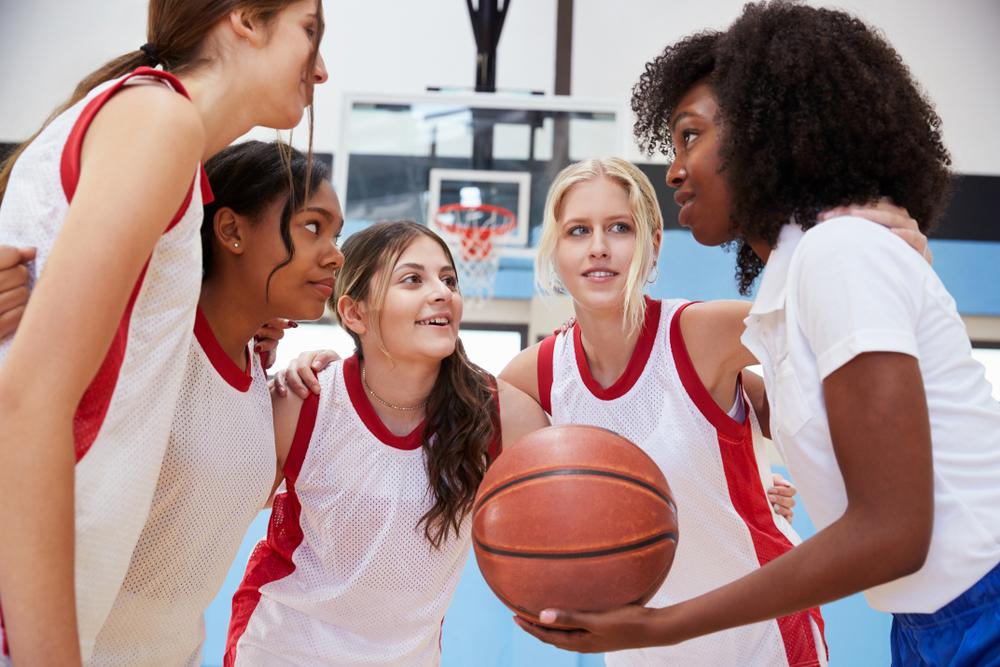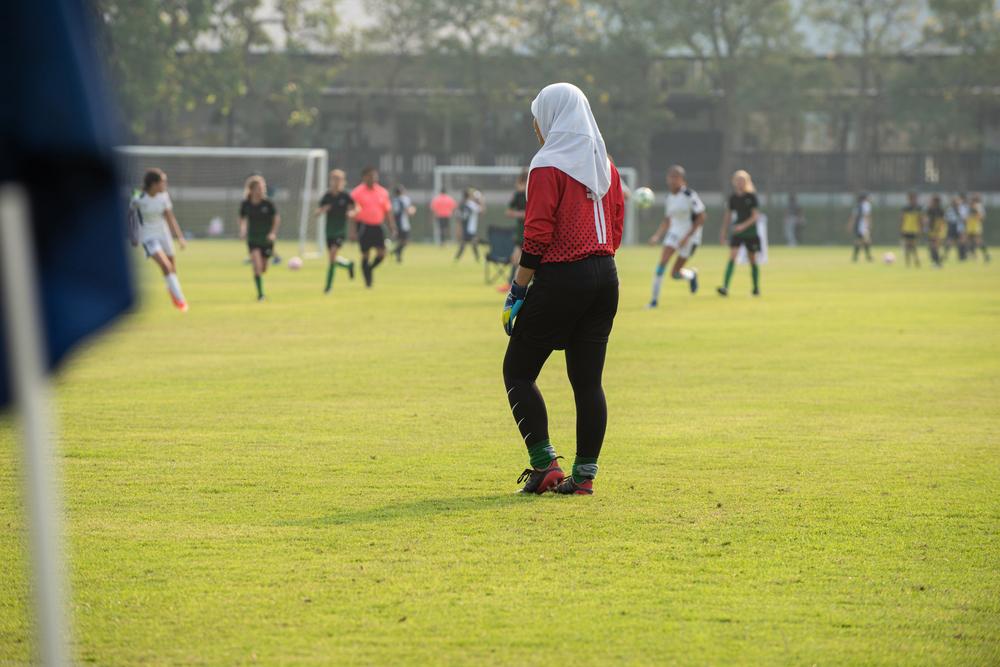Here, TrueSport Expert Deborah Gilboa, MD, is sharing eight ways to make sure youth sport is delivering on you and...
TEACH Respect & Accountability
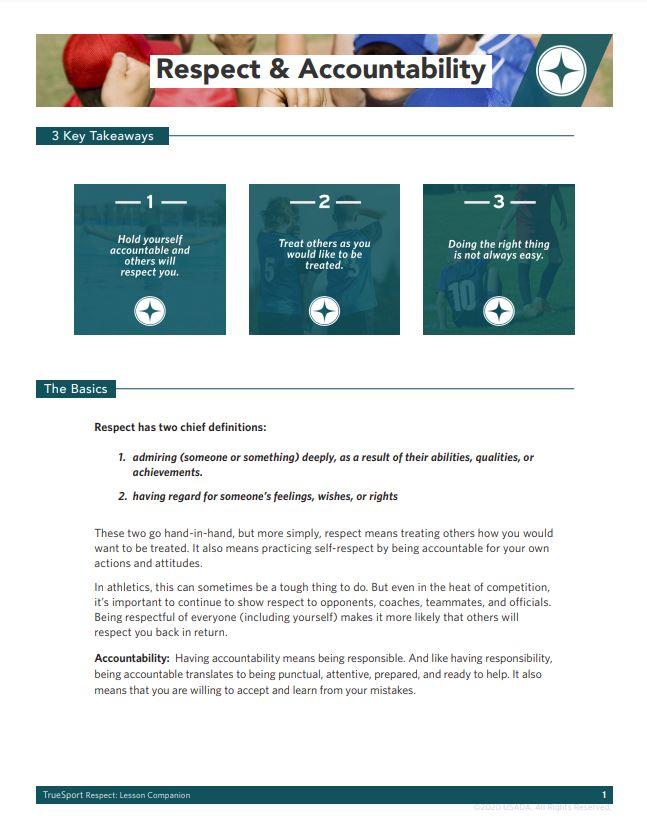
Simple Lesson
Having respect means that you are considerate to others and treat people like you would want to be treated. Practicing self-respect means that you are accountable for your actions, which is not always the easiest thing to do.
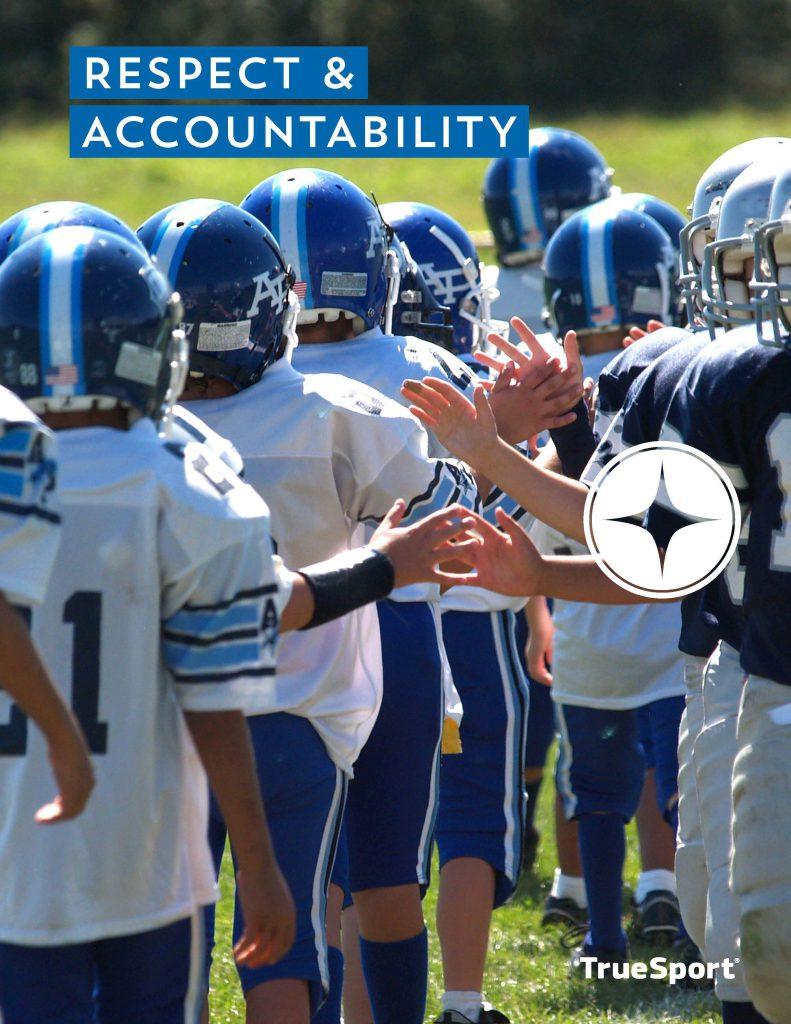
Premium Version starts at just $5
What is respect and accountability, and how do they play a part in being a good sport? Is doing the right thing always the same as doing the easy thing? How can athletes learn to hold themselves accountable? Find answers to these questions and more inside the TrueSport Respect & Accountability lesson!
LEARN more about Respect & Accountability
Loading...
TrueSport Expert Betsy Butterick explains the steps you can take as a coach to improve your self-reflection when addressing team...
Cross-culture communication is exactly what it sounds like: Being able to communicate in an honest, productive, healthy way with all...
Respect & Accountability videos
Loading...
